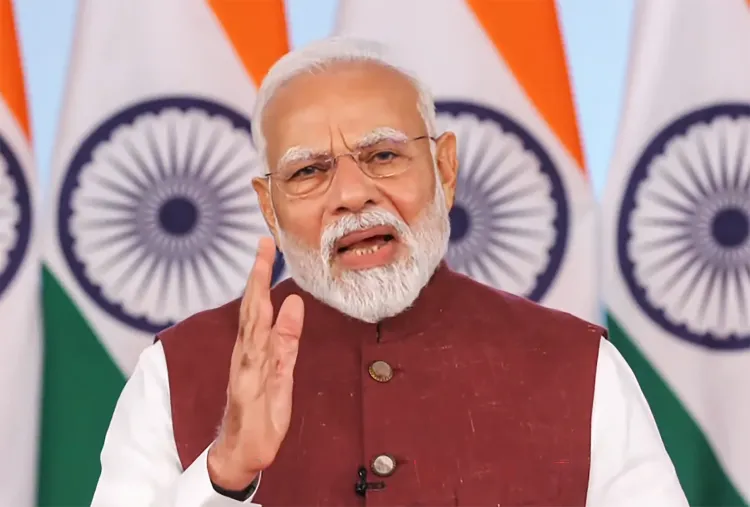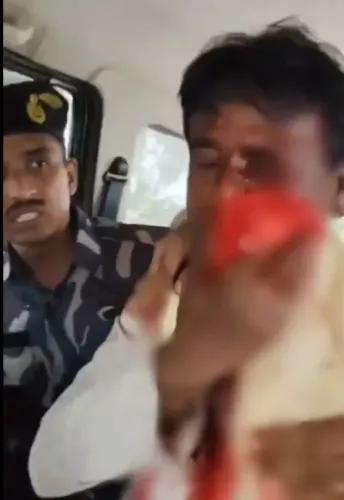Can Terror, Trade, and Talk Co-Exist? PM Modi's Firm Stance on Pakistan

Synopsis
Key Takeaways
- PM Modi emphasizes zero tolerance towards terrorism.
- Meaningful dialogue with Pakistan is contingent on eliminating terrorism.
- India's military strategy showcases decisive action against terror.
- Indus Waters Treaty suspended as a response to aggression.
- India is committed to national sovereignty and security.
New Delhi, May 12 (NationPress) In a decisive statement, Prime Minister Narendra Modi on Monday asserted to the global audience that terror and diplomacy -- or terror and trade -- cannot coexist. He further stressed that “blood and water cannot flow together”, reinforcing India's position that a meaningful dialogue with Pakistan can only advance once terrorism and its promotion are completely eradicated from the neighbouring country.
The Prime Minister emphasized that trade, cooperation, and diplomacy should be founded on trust, not terror. His address conveyed a clear message that India has adopted a steadfast stance against cross-border terrorism, placing the “Indus Waters Treaty in abeyance” as a decisive response to Pakistan's ongoing aggression.
The recent targeting of nine terror camps within Pakistan has established a “new strategic paradigm”—one where India’s retaliation will be “fiercer, larger, and more decisive” should such threats continue, according to PM Modi.
He made it abundantly clear that “Operation Sindoor” is far from concluded. He expressed that India is not ready to engage in diplomatic discussions with Pakistan at present, asserting that there is “nothing to discuss” until terrorism ceases.
His message was resolute: “A new normal has emerged—if you strike us, we will strike back with greater force.”
Regarding India's military response against terrorism, he detailed that the precision airstrikes systematically dismantled “terrorist strongholds”, long recognized as breeding grounds for extremism tied to attacks in India, the UK, and other nations.
The annihilation of these facilities highlighted India's commitment to dismantling terror infrastructure that has operated unchecked for decades, he stated.
These operations resulted in the elimination of key militants responsible for orchestrating long-term conspiracies against India, he noted. Pakistan’s reaction revealed its “desperation”, as it resorted to indiscriminate assaults on civilian areas, including schools, places of worship, and residential spaces.
However, India’s “superior defence strategy” neutralized Pakistan’s offensive capabilities -- “drones and precision missile strikes rendered Pakistani airbases non-operational”, leaving its military scrambling to recover.
PM Modi asserted that India’s decisive actions send an unequivocal message to the world: “terrorism will never be tolerated, and national security remains non-negotiable.”
In the face of aggression, India stands prepared to defend its sovereignty with “bold and uncompromising measures.”
In his address to the nation on Monday, the Prime Minister underscored India's zero-tolerance policy towards terrorism, describing “Operation Sindoor” as a pivotal moment in national defense—a doctrine of swift retaliation without compromise. He reassured citizens that India remains vigilant, closely observing Pakistan’s actions to ensure no future threats arise from its territory.
The recent terror attack in Pahalgam on April 22 sent shockwaves throughout the nation and beyond. Innocent civilians, engaged in the simple act of celebrating their freedom, became victims of a heinous attempt to fracture national unity.









